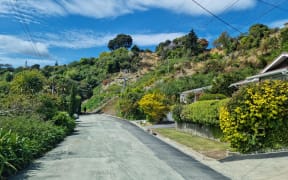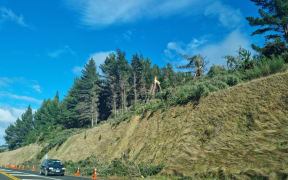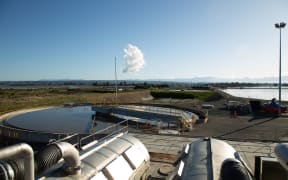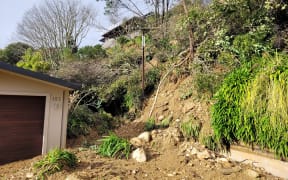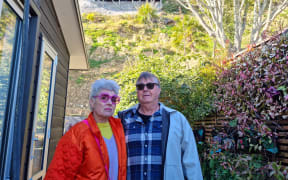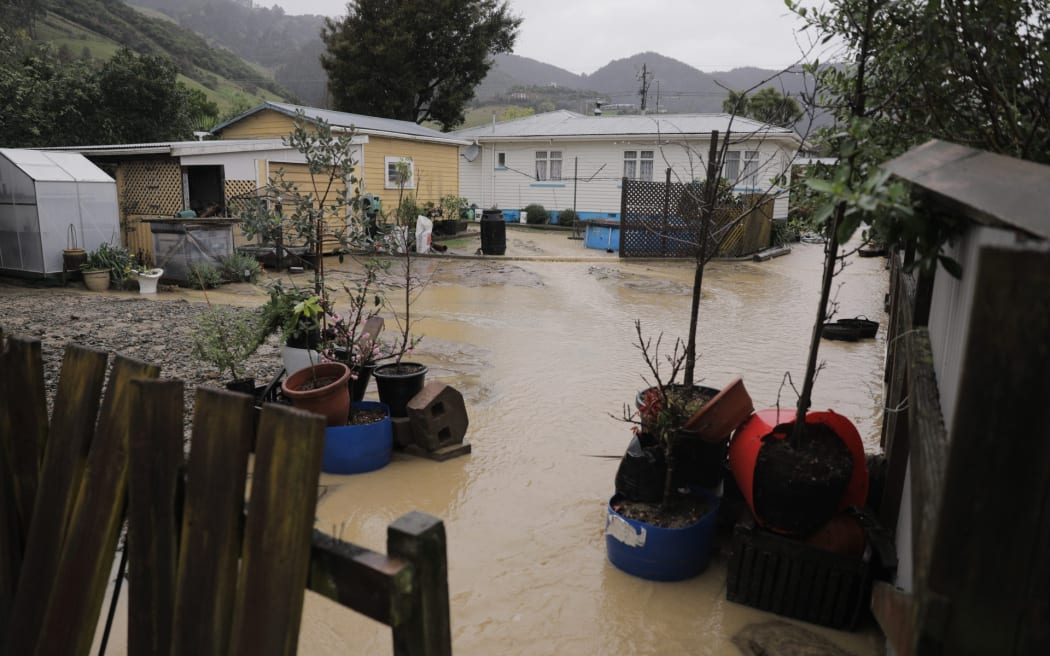
Floods struck Nelson in August 2022, leaving 14 homes unsafe to occupy. Photo: RNZ / Angus Dreaver
Nelson residents have to wait another six months for decisions on buyouts of their homes that were destroyed by floods last year.
Several residents said they were frustrated at the drawn-out process for council buyouts of their uninhabitable homes, after they were red-stickered following the floods in August 2022.
They have not been told if their homes qualify for a buyout, or if the offer will remain on the table after consultation with the public.
Almost two months after the government made an offer of support, Nelson City Council agreed to a cost-sharing package of $12.3 million to help the city recover from the floods.
The package includes $6m to buy out up to 14 properties that are not safe to live in.
But in a meeting yesterday that the public was excluded from, the council decided to ask the community for feedback in March or April next year, as part of consultation for the Long Term Plan for 2024 to 2034.
When the government's buyout offer was first discussed by the council last month, staff and elected members raised concerns that accepting the deal could set a precedent in future natural disasters.
Last month, councillors unanimously agreed in principle to the cost-sharing package, but asked for a report detailing the implications and future costs. That report was discussed in the closed-door meeting on Thursday.
Mayor Nick Smith said the council was required to consult with the community on the buyouts.
"Unlike the North Island councils, Nelson City Council does not have access to the special legislation passed in the wake of Cyclone Gabrielle that enabled a truncated process.
"This consultation will take some time, but will provide the public and affected property owners with the opportunity to comment and have input into the principles for the buyouts," Smith said.
The families with uninhabitable homes were in limbo, but help was on the horizon, he said.
"I'm pleased that after extensive lobbying for additional government support to help these residents and offset the cost to ratepayers, this cost-sharing package was offered to council.
"The package is similar to government support offered to North Island communities affected by Cyclone Gabrielle and the Auckland rainfall events."
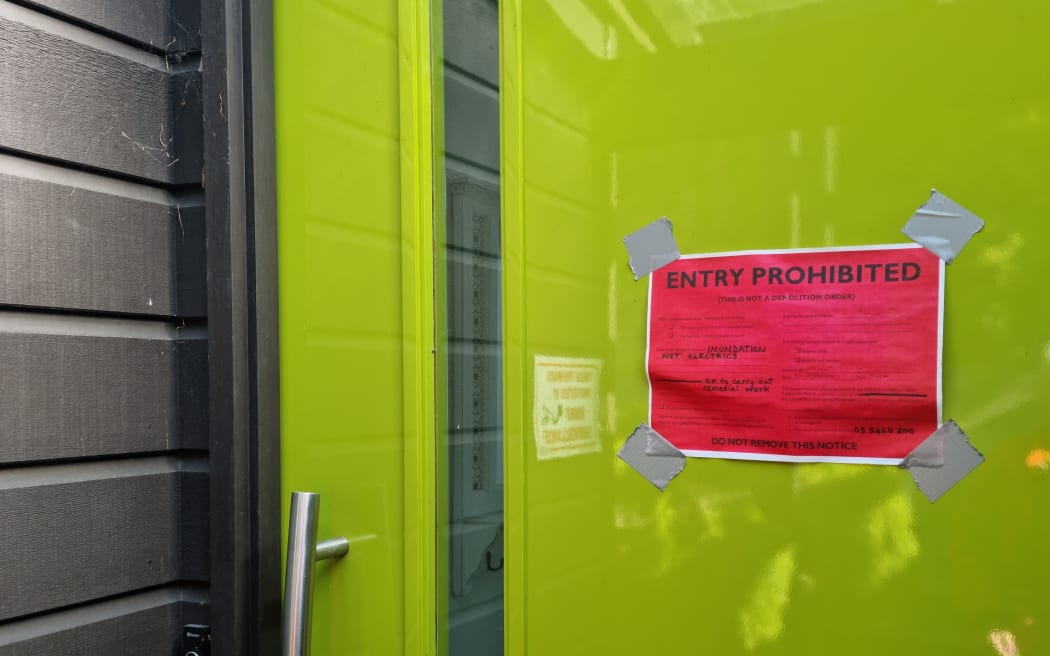
A red sticker marks the home of Julie Ambrose and Geoff Moffett as uninhabitable. Photo: RNZ / Samantha Gee
Geoff Moffett, whose home is red-stickered, said he was frustrated and annoyed at the news of a long wait.
"Are our lives to be put on hold for a further six months before the council makes a final decision? And then with no assurance at all that property owners will receive a buyout offer. It seems incredible this would be the case," Moffett said.
The inability for the public to attend yesterday's council meeting meant affected homeowners remained in the dark, he said.
"It would appear we are no further ahead than we were a month ago, except for another, provisional, agreement to the government offer. Is this council concerned at all about the welfare of its ratepayers?" Moffett said.
Owners of other red-stickered homes said the long wait added another hurdle.
They did not know if their homes were included in the 14 properties identified by the council, although they were red-stickered and could not be made safe to live in without significant cost.
Of the $12.3m government funding, $6m is earmarked for fixing slips on council land, $6m will go towards buyouts for up to 14 properties, and $300,00 is for monitoring the Tāhunanui Slump landslide over the next ten years.
In May, the council decided to spend $17.3m on slips on its land, so the $6m government funding will reduce the council's bill to $11.3m.
The Ministry of Social Development has extended its accommodation allowance for families suffering acute financial hardship, while paying mortgages on homes they cannot live in and whose insurance no longer covers the cost of a rental property.

